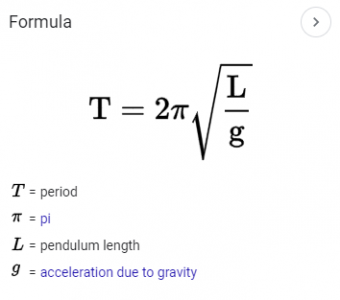-
Welcome back Guest! Did you know you can mentor other members here at H-M? If not, please check out our Relaunch of Hobby Machinist Mentoring Program!
You are using an out of date browser. It may not display this or other websites correctly.
You should upgrade or use an alternative browser.
You should upgrade or use an alternative browser.
My Clock Build Project Thread
- Thread starter devils4ever
- Start date
-
- Tags
- clock escapement gears
Awesome so far, but the real test will be whether the escapement delivers the right power to the pendulum. But that is an adjust you can make with files or diamond laps on the pallet surfaces.
Rick “interesting that the pallets open up” Denney
Rick “interesting that the pallets open up” Denney
- Joined
- May 13, 2019
- Messages
- 1,016
What do you mean? I ran it for a minute before I stopped it!
Just kidding. I know the true test is how much weight is used and if it runs and runs.
Just kidding. I know the true test is how much weight is used and if it runs and runs.
- Joined
- Nov 23, 2014
- Messages
- 2,606
Okay, I learned something. I would have guessed that the rate the clock runs at is dependent on the pendulum weight/length. I thought you could speed up a clock by shortening the length of the pendulum and/or reducing the weight.What do you mean? I ran it for a minute before I stopped it!
Just kidding. I know the true test is how much weight is used and if it runs and runs.
Bruce
- Joined
- Dec 18, 2019
- Messages
- 6,447
That's how it works on my wall pendulum clock, raising or lowering the pendulum is used to true the clock tick rate. Don't know about adding or subtracting weight.Okay, I learned something. I would have guessed that the rate the clock runs at is dependent on the pendulum weight/length. I thought you could speed up a clock by shortening the length of the pendulum and/or reducing the weight.
Bruce
- Joined
- May 13, 2019
- Messages
- 1,016
The theoretical period of a pendulum is based solely on the length, I believe. It should be independent on the weight.
However, the weight I was referring to is the weight that drives the gear train. The less friction and better balanced everything is, the less weight is need to supply energy.
However, the weight I was referring to is the weight that drives the gear train. The less friction and better balanced everything is, the less weight is need to supply energy.
- Joined
- Sep 13, 2018
- Messages
- 255
On Synchronome type clocks (of which I am slowly building one) they apparently can fine tune the period with a weight tray on the pendulum. You could then add small weights on that tray to compensate.The theoretical period of a pendulum is based solely on the length, I believe. It should be independent on the weight.
However, the weight I was referring to is the weight that drives the gear train. The less friction and better balanced everything is, the less weight is need to supply energy.
I have no direct experience yet, just making the arbors.
Gerrit
- Joined
- Nov 23, 2014
- Messages
- 2,606
Correct on the "period for a pendulum" formula (gotta love Google):The theoretical period of a pendulum is based solely on the length, I believe. It should be independent on the weight.
However, the weight I was referring to is the weight that drives the gear train. The less friction and better balanced everything is, the less weight is need to supply energy.

It's a function of pendulum length; only variable that matters (on this planet). I would imagine the formula assumes a frictionless "world", so maybe adding some weight would slow it down.
Bruce
- Joined
- Oct 11, 2016
- Messages
- 3,857


